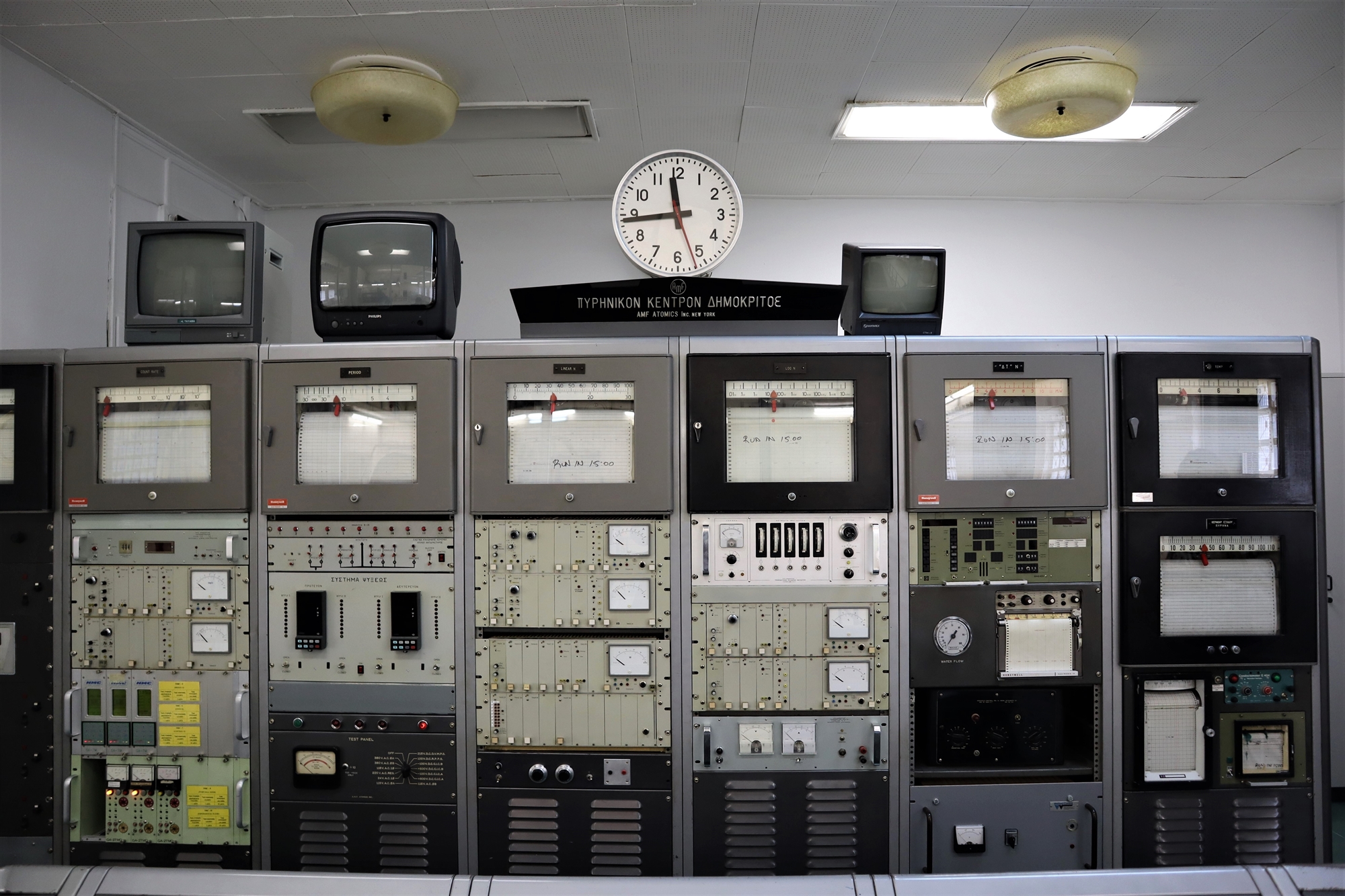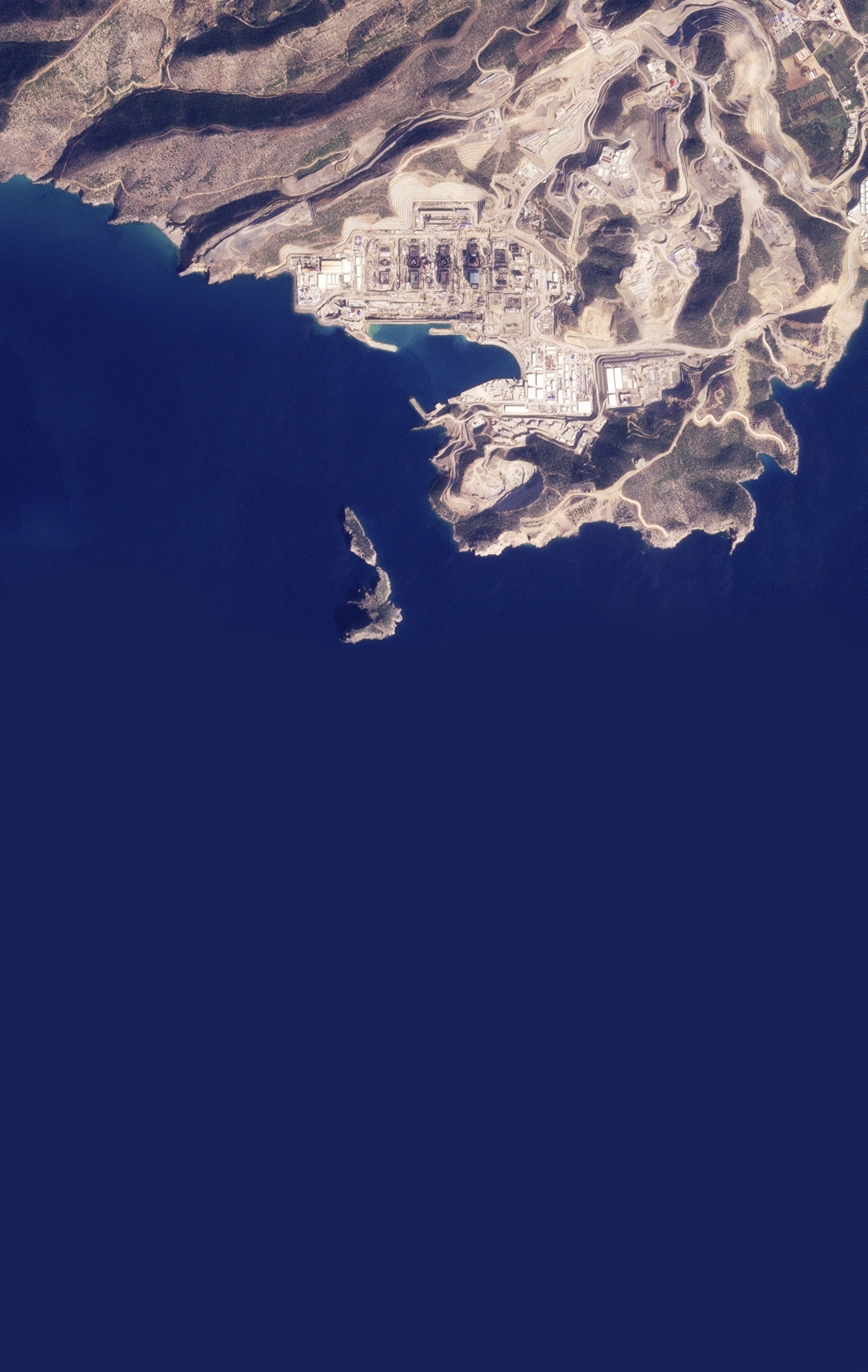
The recent devastating earthquake in Turkey sparked discussions about the safety of nuclear facilities in earthquake-prone areas. A nuclear power plant under construction in Akyuyu, Turkey, near the affected areas, brought back memories of the Fukushima nuclear accident. How safe are nuclear facilities in seismic areas?
“K” visited the Hellenic Atomic Energy Commission facilities at Demokritos and spoke with EEAE President Christos Khousiadas about the regulatory framework for nuclear installations, international regulations and nuclear safety regulations, while the discussion also focused on the national plan to meet radiological or nuclear needs and preparedness of Greece for any unforeseen circumstances. The interview was accompanied by a tour of the facilities of the now inactive Greek nuclear reactor.
– The problem of earthquakes is very serious when it comes to the safety of nuclear installations, and this issue is given great attention in accordance with international and European standards.
In general, this is a problem that is considered curable. Nuclear reactors are objects that certainly have risks, but their anti-seismic protection is developed, and their resistance to earthquakes is almost documented. So on a technocratic level, it’s not a big problem. But there are also historical precedents. That is, reactors of both Western design and technology, and Eastern technology have been tested by strong earthquakes.
Such examples are stations in California that have coped with recent strong earthquakes, as well as a station built in the east in Armenia, where a very strong earthquake occurred and, despite its antiquity, no problems were created.
– Nuclear power plants are designed and built on the basis of a philosophy that in English is called “defence in depth”, and in Greek – “defense in depth”. This means that there is a pyramid of backup systems. I will give you an example: in a nuclear power plant, electricity is needed because if it is lost, there will be a blackout and a nuclear accident. So the lines that bring external electrification are not one, there are more of them, there can be two, three or four independent ones. So, if one is lost, there is a second; if the second is lost, there is a third. If all four are lost, then there are energy generating pairs, i.e. generators.
So we see a pyramid of redundant levels of safety, and if the diesel generators are also lost, the nuclear plant can, in a pinch, operate as an isolated island. This happened in Zaporozhye, it was closed for a short time. In this case, the reactors work to give energy to others who have lost it.

Yes, this is a very correct remark. So, to the question of what is the basis of the safety philosophy at nuclear power plants, it is based on “defence in depth” and this approach has proven to be very effective, but not 100% invulnerable, because historically there have been major nuclear accidents. So yes, indeed, under bad circumstances and a bad combination of factors, as well as a combination of extremes, all lines of defense can collapse.
– Fear is always there, but it is not the kind of fear that should cause disproportionate concern. In the case of Akougios, records have appeared in the international specialist bibliography from the first moment. Analyzes revealed no problems. Akugiu is not very close to the epicenter, but about 400 kilometers west of the epicenter.
A major nuclear accident could have serious consequences in the Greek area. But this does not require strict measures of civil protection.
– There is no. And there was a lot of discussion on this issue after the collapse of Japan. In fact, there has been a great debate for several years about whether nuclear security should be considered a universal good and, in that sense, should be included in an internationalized framework. At first it seemed that steps in this direction would be made, but they quickly backed down, and therefore, at the moment, the nuclear safety of facilities is a purely national matter.
– There are serious, more serious and less serious control, but all of them are subject to gradation in the international context. However, current international law is not “legally binding”, in contrast to the international nuclear material control system, which is strict and binding. Iran also falls into this context.
– There is legislation that is morally binding. There is an international convention. This is important, and international networks have also increased in terms of facility safety, but compliance with the convention is not subject to international oversight, except of course in the European Union, where nuclear plants are assessed at regular intervals by other member states. . Greece is in control.

“Akugios station is 300 kilometers from the farthest eastern tip of Greece, that is, from Kastelorizo, not even from Rhodes, not even from mainland Greece. This distance is sufficient to consider that high level civil protection measures are required.
– It could happen now. That is, whether we are talking about Akugiu or other more remote stations, a major nuclear accident could have significant consequences in the Greek area. But these will not be consequences that require strict measures of civil protection. But they will require control of food, feed and similar measures. But not evacuation or resettlement of the population, and not even prophylactic iodine tablets. This question does not arise for Greece.
“The emergency plans have been around since they were called Appendix P to the Xenocratis plan. This plan has been replaced by a new one called ESARPEA, which stands for Special Radiological or Nuclear Emergency Response Plan, and has been officially in place since May last year.
“He can call, he can demand, he has the right, and that is what our country is doing. But he does not have the ability to determine the national choice regarding the energy balance of another country. Even if the other country is a member of the European Union, even more so if it is a third country and in fact it has a Greek signature, as well as the signature of all member states of the European Union. Because the preamble to Euratom’s nuclear safety legislation states that the development of nuclear power is a matter of national sovereignty.
The dormant reactor of Athens and the decision to abstain
– It is true that Greece very early and very quickly in the most official way announced its ambitions to participate in nuclear energy.
At the beginning of 1954, a law “On the establishment of the Hellenic Atomic Energy Commission” appeared in Greece. Well, Greece showed very early ambitions of the kind that it has served for a long time. In this context, a reactor was built, it worked, and for some time there was a question about the development of nuclear energy in Greece.
However, in the first years of the post-colonial period, Greece, by official decision of the government, joined the club of non-nuclear countries, and since then and to this day it has been doing so, and with almost political unanimity.
After the Chernobyl accident, the final decision was made not to use nuclear energy in the country’s energy balance. Nevertheless, the reactor continued to operate, and properly, but in a different context, now as a research tool, and not in the context of the development of nuclear technology.
Its operation was completely halted during the Olympics for special security reasons and has not actually been restored since.
– The question is often asked why there is no nuclear power plant in Greece that will provide cheap energy.
– Whether nuclear energy will be included in the country’s energy balance is not a scientific or technocratic decision. This is essentially politics.
Nevertheless, we are a nuclear country, as we are equally involved in the European process. And it is fair to say that a large amount of electricity imported from Bulgaria comes from nuclear power plants. I say this because some other countries that oppose nuclear power, perhaps more sincerely, have laws against the import of energy from nuclear plants. That is, in addition to the anti-nuclear flag, they also bear the costs.
Source: Kathimerini
Ashley Bailey is a talented author and journalist known for her writing on trending topics. Currently working at 247 news reel, she brings readers fresh perspectives on current issues. With her well-researched and thought-provoking articles, she captures the zeitgeist and stays ahead of the latest trends. Ashley’s writing is a must-read for anyone interested in staying up-to-date with the latest developments.